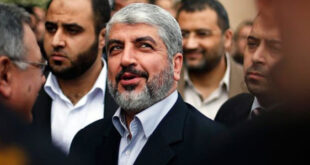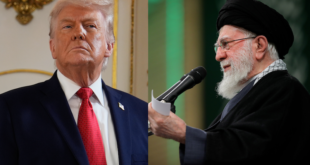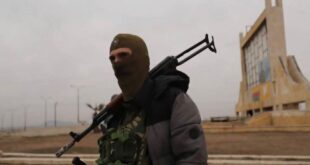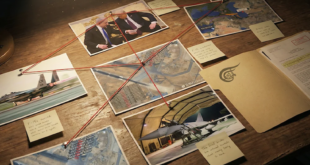 TEHRAN (FNA)- Thousands of Shiites rallied Friday against a proposed US-Iraqi security pact, while one of Iran’s most influential politicians urged Iraq’s government and religious leaders to block the deal.
TEHRAN (FNA)- Thousands of Shiites rallied Friday against a proposed US-Iraqi security pact, while one of Iran’s most influential politicians urged Iraq’s government and religious leaders to block the deal.
The US is in talks with Iraqi officials to get them to sign a provocative security agreement which secures long-term US presence in Iraq.
Iraqis have held weekly protests against the deal, which critics fear will extend American military, economic and political domination of the country.
It also gives the occupation forces a free rein to stage military operations wherever and whenever they deem necessary, without consulting the Iraqi government.
Tehran is concerned that the yet-not-concluded security deal could lead to establishment of permanent US bases in the neighboring country.
“Americans persistently want to impose the agreement, which surely does not support the interests of Iraq and is harmful to the future of Iraq,” former President Akbar Hashemi Rafsanjani said during the Friday Prayers sermon in Tehran.
“God willing, the Iraqi nation – with the awareness and leadership of clerics and the awareness of the Iraqi government – will not allow such a miserable event to happen.”
Rafsanjani heads two of Iran’s most powerful clerical governing bodies, the Expediency Council and the Assembly of Experts.
The proposed agreement, which has been under negotiation for most of this year, would replace the current UN mandate, which expires at the end of the year. Any agreement must be ratified by the Iraqi parliament.
The controversial agreement has drawn criticism from many Iraqi officials, lawyers, religious and political figures across the country.
Grand Ayatollah Ali al-Sistani, the most revered religious leader in Iraq, has also rejected the security agreement with the US, saying such a deal will undermine the country’s sovereignty.
The main sticking points include Iraqi objections to blanket immunity for US troops and private contractors and demands for oversight over American forces during raids and detentions.
Many fear Washington has plans to keep permanent bases, despite a denial of any such plan written into the proposal. Iraqis say the drafts submitted by the Americans thus far would infringe on Iraq’s sovereignty by giving US forces too much freedom to operate.
With time running out, a US negotiating team led by top State Department adviser David Satterfield returned this week to Iraq to continue talks.
Protesters emerged from Friday prayers in Baghdad’s main Shiite stronghold of Sadr City and the holy city of Kufa, chanting “No to the occupation” and “No to America” and raising Iraqi flags.
The security pact also faces strong criticism from members of al-Maliki’s own coalition. Two Iraqi officials familiar with the negotiations have warned that a deal is unlikely to be reached before the end of President Bush’s term in January unless Washington backs off some demands seen as giving American forces too much freedom to operate in Iraq and infringing on Iraqi sovereignty.
The two officials said opposition in the legislature was so widespread that it stood no chance of winning approval without significant changes in the US position.
 Eurasia Press & News
Eurasia Press & News



